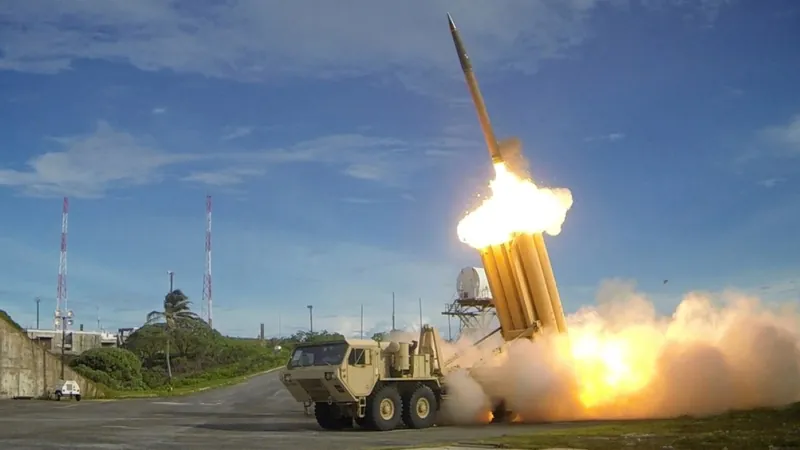
US Troop Deployment to Israel Sparks Controversy: Is a War on the Horizon?
2024-10-15
Author: Benjamin
Introduction
The recent decision by the United States to deploy advanced anti-missile systems, including the Terminal High Altitude Area Defense (THAAD), along with 100 troops to operate them in Israel has raised eyebrows and ignited debate over Washington's role in the escalating conflict in the region. This move signifies a dramatic increase in US involvement in the ongoing Israeli campaign, which has received substantial American financial and military support.
Controversy and Backlash
Many observers are questioning the legality and morality of this deployment, especially given the increasing backlash against President Joe Biden's administration for its steadfast support of Israel amidst reports of humanitarian crises in Gaza. This military assistance is seen as a preemptive measure against anticipated Iranian retaliation to Israeli operations targeting Iran's military capabilities.
State Department Ultimatum
This latest decision comes on the heels of a leaked letter from Secretary of State Antony Blinken and Secretary of Defense Lloyd Austin, which urged Israeli leaders to address the deteriorating humanitarian conditions in Gaza within a 30-day timeframe. Analysts critical of Biden's policies argue that this ultimatum lacks substance, akin to "empty threats," given prior instances when the administration delayed imposing similar consequences.
Political Motivations
State Department spokesman Matthew Miller, during a recent press briefing, was evasive when asked about potential ramifications should Israel fail to adhere to US requests, suggesting a disconnect between stated policy and actionable measures. Critics, such as former State Department official Annelle Sheline, speculate that the timing of the ultimatum is politically motivated, aimed at swaying undecided voters in swing states ahead of the upcoming elections.
Implications of Military Deployment
The deployment of US troops and military hardware also raises alarms regarding deeper US entanglement in a conflict with staggering implications. The THAAD system is designed to intercept ballistic missiles, providing Israel with an advanced defense that further solidifies US support at a time when humanitarian needs in Gaza are escalating alarmingly.
Iranian Response
Iranian officials have reacted sharply, warning that the US is endangering the lives of its forces and reiterating their commitment to defending national interests. This escalation may lead the US into a more complex conflict, moving away from diplomatic solutions and towards military confrontation.
Legal Ramifications
Experts are concerned about the legal ramifications of this military support, particularly as it appears to breach existing laws regulating presidential military authority. The deployment of combat-ready troops without congressional approval may compel the administration to address this oversight, as it could trigger a statutory requirement for Congress to vote on further military engagement.
Conclusion
While Biden has characterized US actions as protective and strategic, many believe that his administration is using contentious legal interpretations to justify military involvement in conflicts like those with Houthi rebels in Yemen, further complicating international relations and escalating tensions in the Middle East.
In conclusion, the Biden administration is at a critical juncture, balancing the scales of political pressure domestically while navigating a foreign conflict that continues to spiral towards potential escalation. As the situation unfolds, the implications of US military deployments in Israel could have lasting effects on both regional stability and international law. What does this mean for the future of US involvement in the Middle East? Is America on the brink of another conflict? Only time will tell.









 Brasil (PT)
Brasil (PT)
 Canada (EN)
Canada (EN)
 Chile (ES)
Chile (ES)
 España (ES)
España (ES)
 France (FR)
France (FR)
 Hong Kong (EN)
Hong Kong (EN)
 Italia (IT)
Italia (IT)
 日本 (JA)
日本 (JA)
 Magyarország (HU)
Magyarország (HU)
 Norge (NO)
Norge (NO)
 Polska (PL)
Polska (PL)
 Schweiz (DE)
Schweiz (DE)
 Singapore (EN)
Singapore (EN)
 Sverige (SV)
Sverige (SV)
 Suomi (FI)
Suomi (FI)
 Türkiye (TR)
Türkiye (TR)